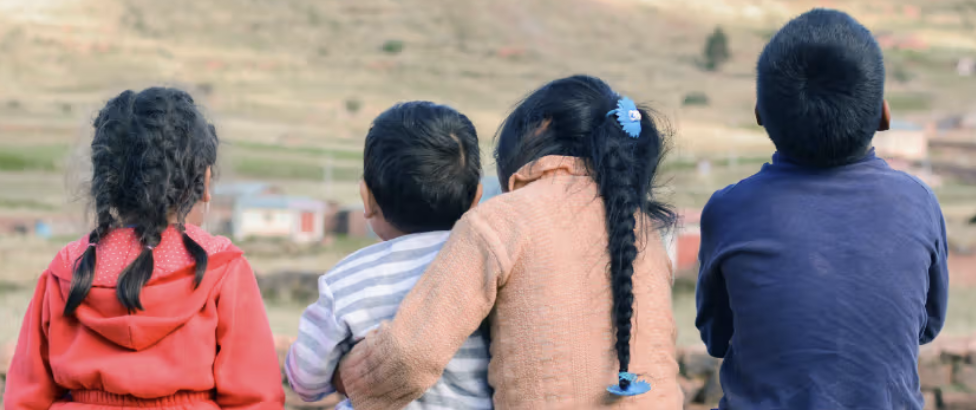
- Details
- By Native News Online Staff
The National Congress of American Indians (NCAI) has officially released the highly anticipated Minority and Missing Report, a comprehensive analysis exposing the disproportionate impact of missing persons cases on Indigenous and other minority communities. Developed in partnership with key law enforcement agencies and community-based organizations, this groundbreaking report brings long-overdue attention to an urgent issue that has historically been overlooked and underreported.
The report draws from a year-long review of data sourced from state agencies, the FBI’s National Crime Information Center Missing Person File, and leading organizations such as the National Center for Missing and Exploited Children (NCMEC) and the National Human Trafficking Hotline. It underscores the pressing need for increased law enforcement resources and broader public awareness to address the ongoing crisis of missing and murdered Indigenous persons, as well as other missing individuals from minority communities.
Among its key findings:
-
A rising number of missing persons cases involving Black and Indigenous individuals remain unresolved, reflecting deep disparities in how such cases are handled—even within the same state.
-
Law enforcement agencies cite significant gaps in resources, training, and culturally appropriate protocols, contributing to delayed or inadequate responses.
-
Media coverage of missing persons cases is strikingly unequal, with those involving People of Color receiving far less attention than cases involving white individuals.
“This report brings the full scope of the tragedy into focus. For too long, Native families have endured this crisis in silence,” said Mark Macarro, President of the National Congress of American Indians. “By working in collaboration with law enforcement and community partners, we are not only highlighting these injustices but also building a pathway toward greater accountability and justice for all affected families.”
The release of this report is part of NCAI’s longstanding commitment to addressing the Missing and Murdered Indigenous Persons (MMIP) crisis. To further this mission, NCAI has joined forces with the Minority and Missing Initiative—an alliance that includes the FBI-Law Enforcement Executive Development Association (FBI-LEEDA), the National Organization of Black Law Enforcement Executives (NOBLE), the National Child ID Program, the Pro Football Hall of Fame, and the NFL Alumni Association’s Caring for Kids Campaign.
Together, these organizations are working to identify systemic challenges and implement solutions to ensure all missing persons cases are treated with urgency and fairness—regardless of race or ethnicity.
“I’m thankful to NOBLE, NCAI, and FBI-LEEDA for assembling the most comprehensive report to date on minority and Indigenous missing persons,” said Kenny Hansmire, Executive Director of the National Child ID Program. “This work is vital, and I’m committed to continuing our efforts to bring every missing child home safely.”
Key Recommendations from the Report Include:
-
Expanded resources and deeper collaboration between law enforcement and community groups to improve information sharing and outreach.
-
A nationwide public awareness campaign focused on missing persons in marginalized communities, with an emphasis on ensuring equitable media coverage.
-
Development of targeted training programs for law enforcement to address cultural biases and systemic barriers that hinder case response and resolution.
-
Greater public education efforts within minority communities to increase awareness and engagement around missing persons cases.
More Stories Like This
Native News Weekly (August 25, 2024): D.C. BriefsUS Presidents in Their Own Words Concerning American Indians
DHS Secretary Noem Tells Tribes ICE Does Not Target Native Americans
Native News Online Marks 15 Years of Warrior Journalism
I’m a Minneapolis Postal Worker. This Is What I Saw.
Help us defend tribal sovereignty.
At Native News Online, our mission is rooted in telling the stories that strengthen sovereignty and uplift Indigenous voices — not just at year’s end, but every single day.
Because of your generosity last year, we were able to keep our reporters on the ground in tribal communities, at national gatherings and in the halls of Congress — covering the issues that matter most to Indian Country: sovereignty, culture, education, health and economic opportunity.
That support sustained us through a tough year in 2025. Now, as we look to the year ahead, we need your help right now to ensure warrior journalism remains strong — reporting that defends tribal sovereignty, amplifies Native truth, and holds power accountable.
 The stakes couldn't be higher. Your support keeps Native voices heard, Native stories told and Native sovereignty defended.
The stakes couldn't be higher. Your support keeps Native voices heard, Native stories told and Native sovereignty defended.
Stand with Warrior Journalism today.
Levi Rickert (Potawatomi), Editor & Publisher


